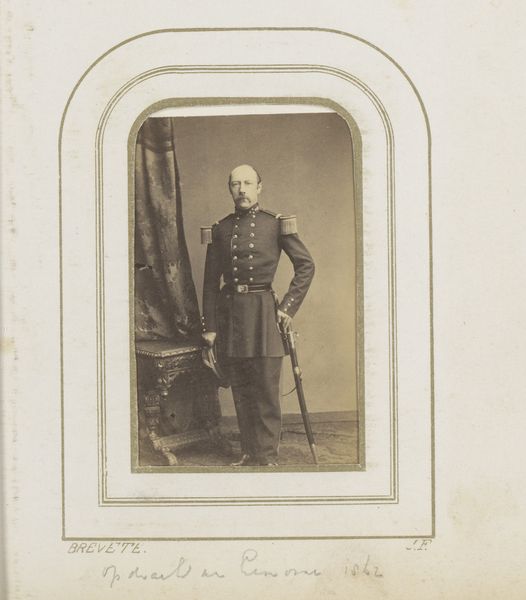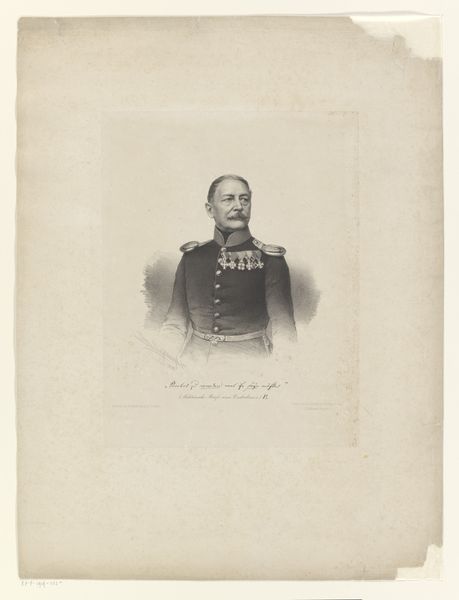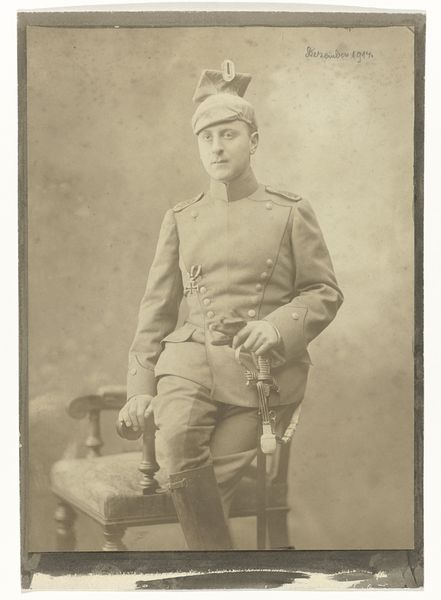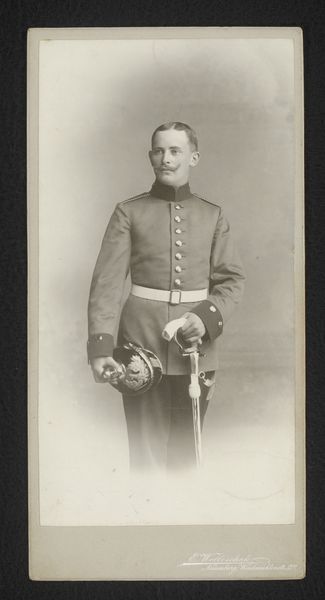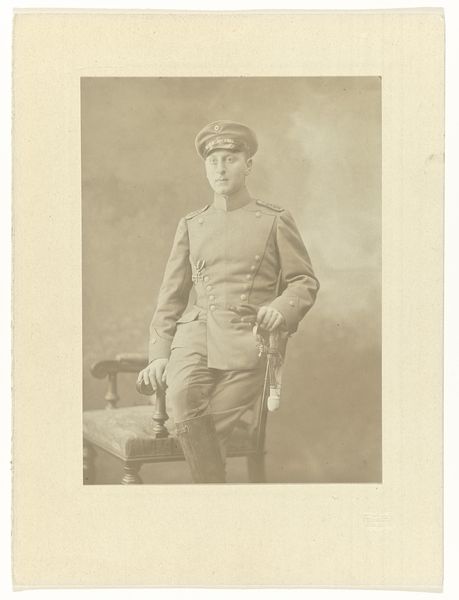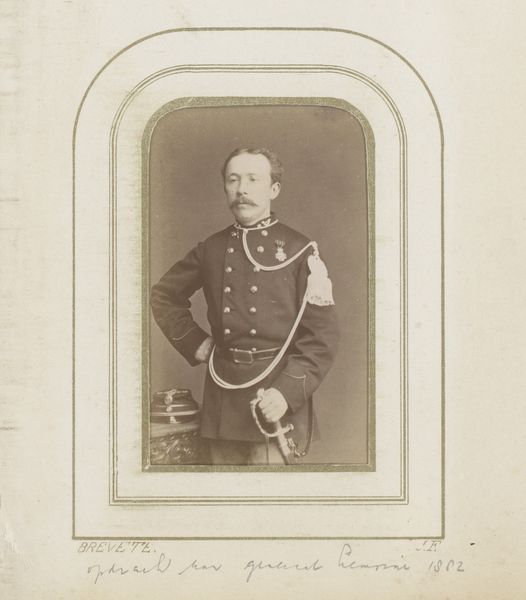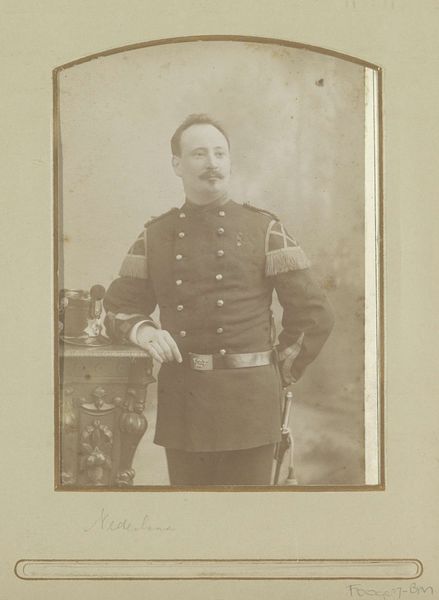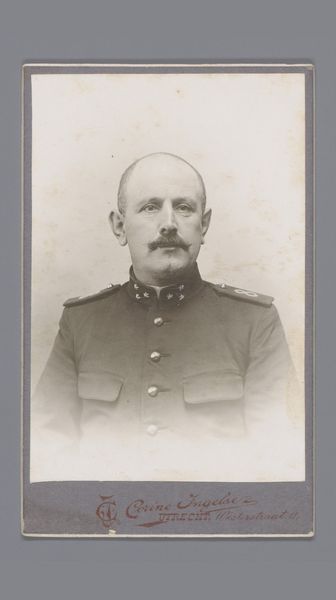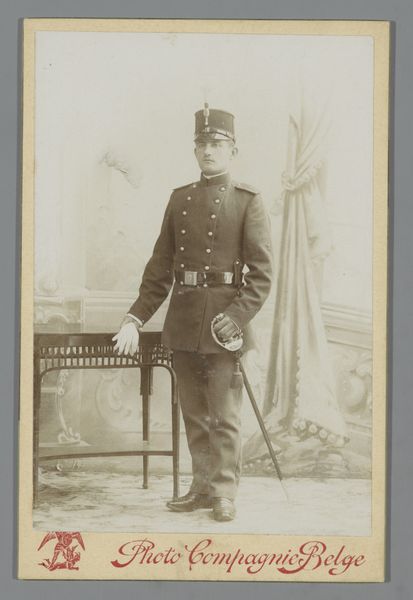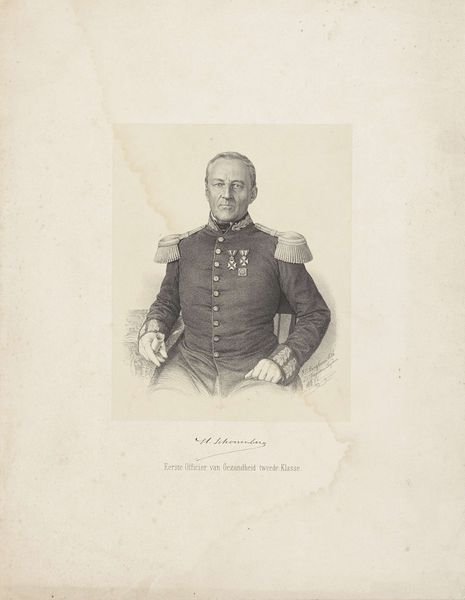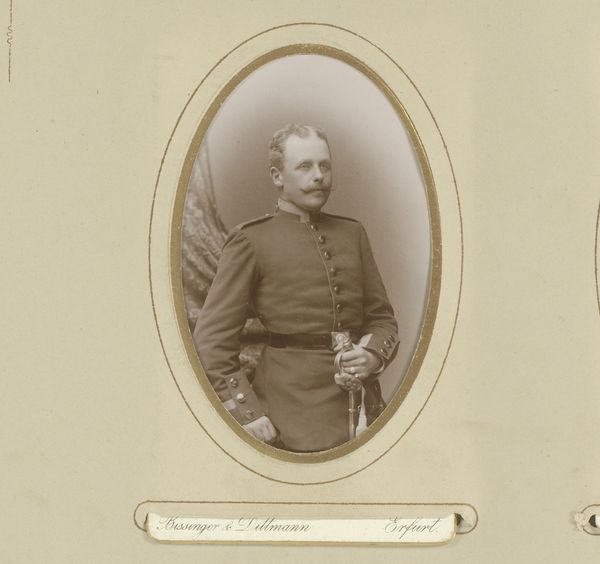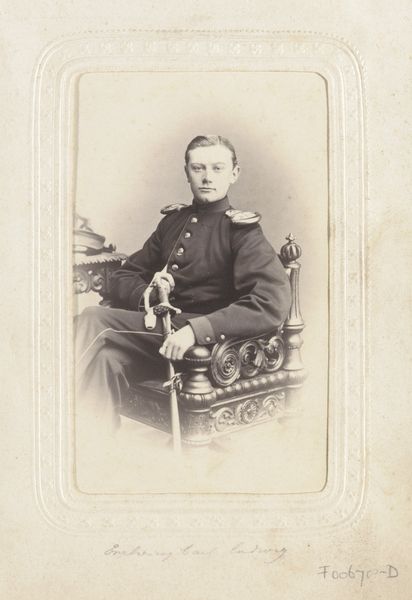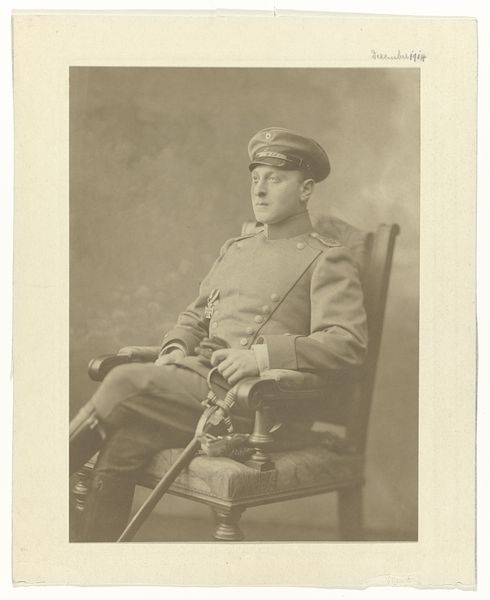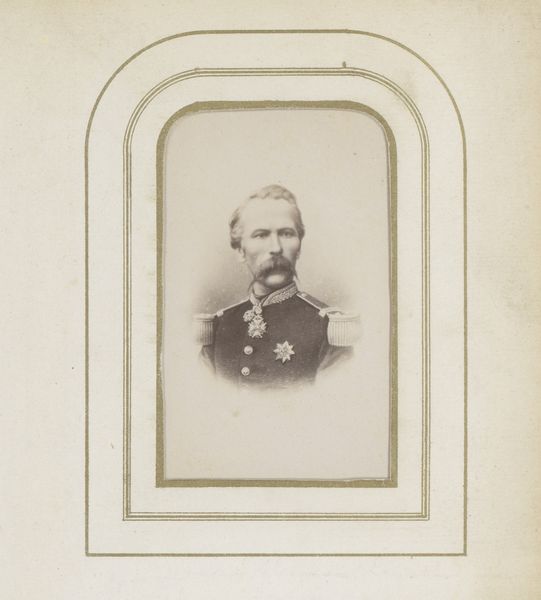
#
personal snap photobooth
#
wedding photograph
#
photo restoration
#
caricature
#
historical photography
#
portrait reference
#
pencil drawing
#
portrait drawing
#
fine art portrait
#
celebrity portrait
Dimensions: height 215 mm, width 290 mm
Copyright: Rijks Museum: Open Domain
Curator: Immediately striking, wouldn't you say? There's a formal rigidity that almost verges on the surreal. Editor: Yes, and we're currently looking at a portrait, "Arthur Moos met sabel in het uniform van het Duitse leger, Landau, 1905," created in 1905. What do you observe formally? Curator: Well, the subject is positioned quite centrally, and the photographic technique really flattens the image— the minimal contrast seems to deliberately de-emphasize depth, leaving this man existing almost as a cutout against an undifferentiated backdrop. His uniform appears almost grey in its neutrality. Editor: It's tempting to read this image as a marker of German-Jewish identity in the early 20th century, given that he's dressed in the uniform of the German army. The very act of a Jewish man serving and being portrayed in the Kaiser's army is complex, laden with assimilation, aspiration, and ultimately, historical tragedy. The sword could speak to Jewish participation in state power. Curator: But the image is also consciously staged. It looks to be shot inside of a photobooth, a sort of middle-class fascination. There are tonal shifts that soften and round the sitter's features in ways that depart from traditional photography, too. It could have easily been an outdoor shot with sharp contours, but this artist has selected and used this specific photographic apparatus and procedure to give the sitter a particular kind of aesthetic weight. Editor: Exactly. The question becomes what does this particular framing communicate about the man and the sociopolitical context he inhabits. It humanizes and commemorates him for posterity, and it does so against the backdrop of rising antisemitism in Germany at the time, and perhaps attempts to create an image that embodies integration and civic pride, while inevitably foreshadowing a much darker history. Curator: Ultimately, even within the confines of such a posed image, the nuances of representation speak volumes about identity, belonging, and the fraught complexities of the period. Editor: Precisely. It highlights the complex interplay between individual identity, social expectations, and historical realities inherent in one carefully staged portrait.
Comments
No comments
Be the first to comment and join the conversation on the ultimate creative platform.
